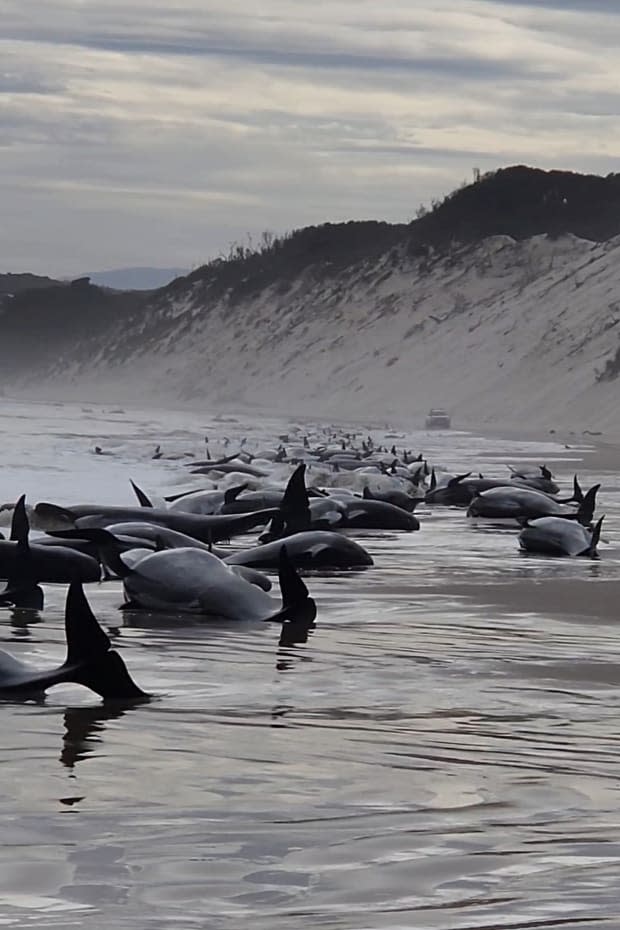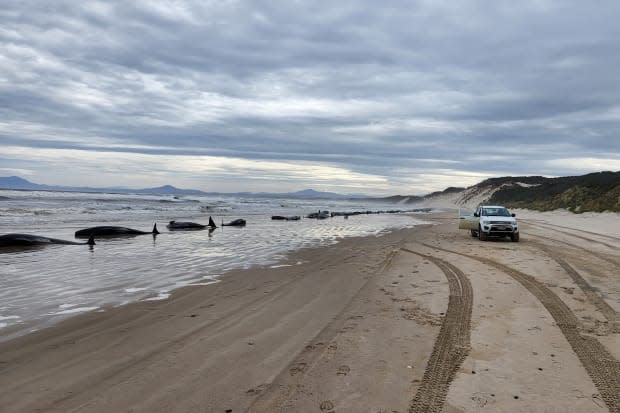Marine Conservationists Work to Rescue Hundreds of Whales Beached in Tasmania
There are around 230 whales in the mass stranding.
On the west coast of Tasmania, about 230 pilot whales are beached in a mass stranding event similar to one from a couple of years ago.
In late Sept. 2020, over 400 pilot whales were beached at the same spot in the largest stranding ever to occur in Australia, as reported by BBC.
Now, marine conservationists are working to rescue as many whales as possible, with ABC News Australia reporting that the Department of Natural Resources and Environment Tasmania believes about 50% to be still alive.

Huon Aquaculture via Getty Images
David Midson, general manager of the West Coast Council, said, "The most important thing, if you're not invited by parks or one of the organisations helping is to stay away. Having extra people can really hinder how they go about their rescue efforts," urging people to stay away from the area while work continues.
"Whales are a protected species, even once deceased, and it is an offense to interfere with a carcass," he explained.
Currently, teams from the Australian Department of National Resources and the Environment Tasmania Marine Conservation Program (MCP) are working with the Tasmania Parks and Wildlife Service and Tasmanian Police at Strahan to organize the rescue operation.
The Department of National Resources said in an official statement, reported by ABC News Australia, "Stranding response in this area is complex. If it is determined there is a need for help from the general public, a request will be made through various avenues."

Huon Aquaculture via Getty Images
According to the New Zealand Department of Conservation, "Pilot whales are prolific stranders, and this behaviour is not well understood."
The country has seen its own share of mass strandings from the species, and the department states that the biggest pilot whale stranding ever recorded was around 1,000 whales in 1918.
Some theories as to why pilot whales end up stranded together include "that pilot whales' echolocation is not well-suited to shallow, gently sloping waters," but they follow their food source in and end up confused, or that the highly social species follows one stranded whale in the pod to help them but ends up stranded as well.
Griffith University marine scientist Olaf Meynecke told NBC News that climate change is shifting ocean currents, and as a result, the whales "will be going to different areas and searching for different food sources. When they do this they are not in the best physical condition because they might be starving, so this can lead them to take more risks and maybe go closer to shore.”
More News:
